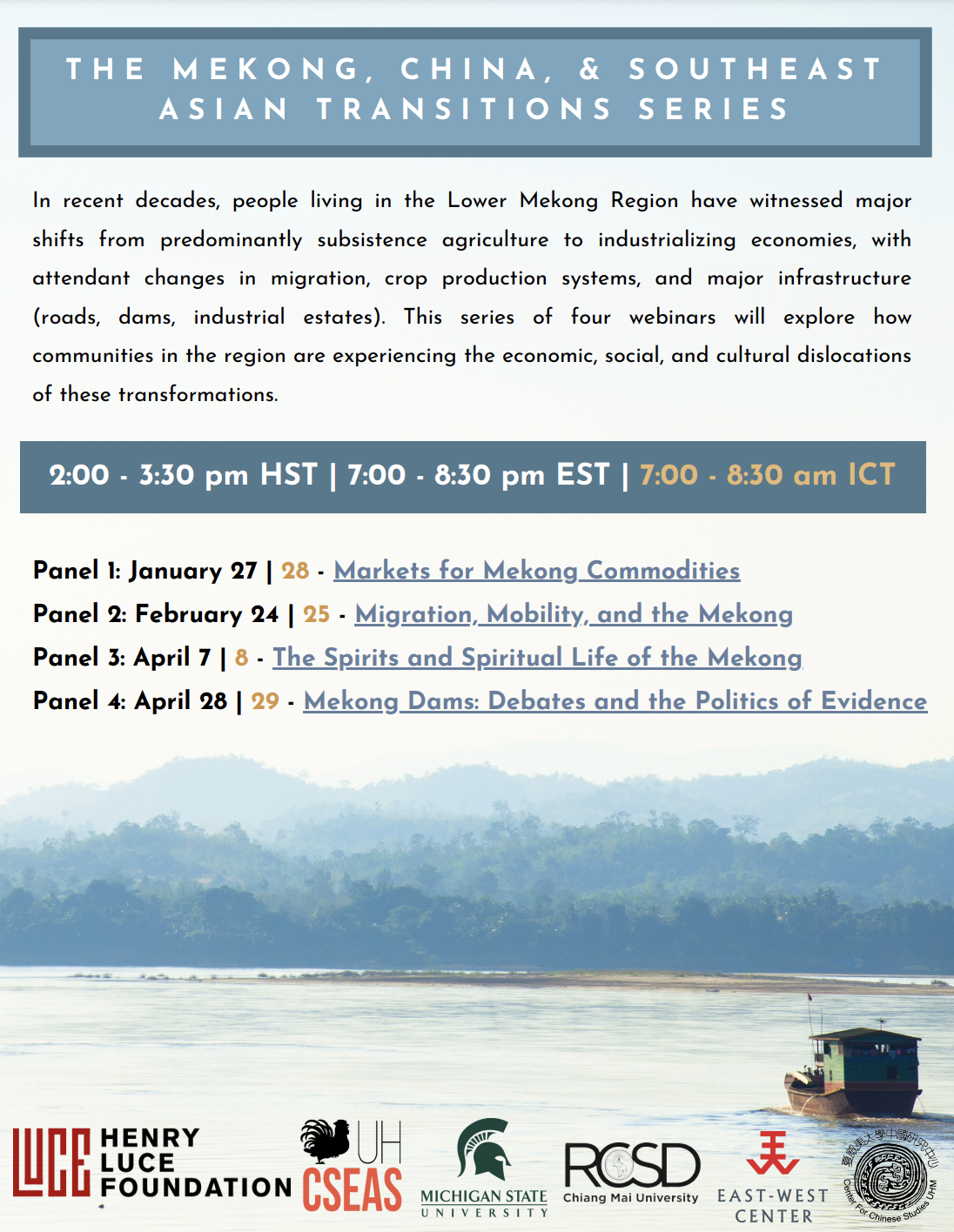Public Session organized for the International Conference on New research in international development, human rights, and international relations at a time of disruption
Organized by the Center for Social Development Studies (CSDS) as part of the Political Ecology in Asia Seminar Series.
Wednesday 29 July 2020, start from 13:00-14:30 GMT+7/Thailand Time
Over the past couple of decades, various sources of air pollution have become major issues of public concern in Southeast Asia and risen to the highest levels of public policy and politics. For example, annual forest fires were especially severe in Northern Thailand this year and raised tensions between vocal urban residents and rural ethnic communities who are regularly blamed due to their use of fire in agricultural practices. Yet, the latter have tried to demonstrate that they themselves are some of the most severely affected and, far from being to blame, are actually at the front line of trying to manage the wildfires risking their lives in the process. Meanwhile, transboundary haze linked to burning peatlands in palm oil plantations in Indonesia causes harm – and frustration - in Singapore and Malaysia, also stoking inter-governmental tensions and blame games even as at least part of the responsibility links back to transnational companies based in Singapore and Malaysia. Also significant across the region is air pollution in expanding major and secondary urban areas produced by vehicles and other economic activities within them, including in Bangkok, Manila, Jakarta, Vientiane, Hanoi and Ho Chi Minh City. Whilst it is commonly narrated that urban air pollution affects all residents, in practice there is a strong social justice dimension as those who work outdoors– such as motorcycle taxi riders or street vendors – are significantly more exposed and with less resources to protect their health. The recent pandemic, and resultant lockdowns, resulted in some respite for the typically harmful pollution even as it is only temporary, and at great cost to livelihoods in general. Within these heated public discussions, many types of knowledge are produced and circulated influencing contesting discourses – including scientific studies, monitoring apps, media analysis, and community knowledge. Whilst a range of divergent solutions are regularly proposed by government agencies, politicians, academics, civil society, and community leaders, year after year air pollution continues to remain a challenge.
In this our first Political Ecology in Asia Seminar, coinciding with the International Conference on New Research in International Development, Human Rights, and International Relations at a Time of Disruption, we focus on the issue of social justice and air pollution. The discussion will examine how various economic, social and political inequalities intersect in relation to air pollution in terms of its creation and exposure, and the consequences for individuals, families and society as-a-whole. We situate the seminar in relation to the past experiences of air pollution and the heated debates that have ensued, but also look to the future given that the COVID-19 pandemic is disrupting and has the possibility to transform many aspects of future society-environment relations.
Speakers:
Daniel Hayward, Regional Centre for Social Science and Sustainable Development, Chiang Mai University
Dr. Helena Varkkey, Department of Strategic and International Studies, University of Malaya
Benjamin Tay, PM Haze
Tara Buakamsri, Greenpeace Southeast Asia
Chair: Asst. Prof. Dr. Carl Middleton, Center for Social Development Studies, Faculty of Political Science, Chulalongkorn University
THIS PANEL WILL BE HOSTED ON ZOOM
This panel will be an online panel discussion hosted via Zoom and you can join by clicking on the link below:
ZOOM MEETING LINK
You can also join using the details below:
For any inquiries about this event, please contact Anisa Widyasari at communications.csds@gmail.com.














